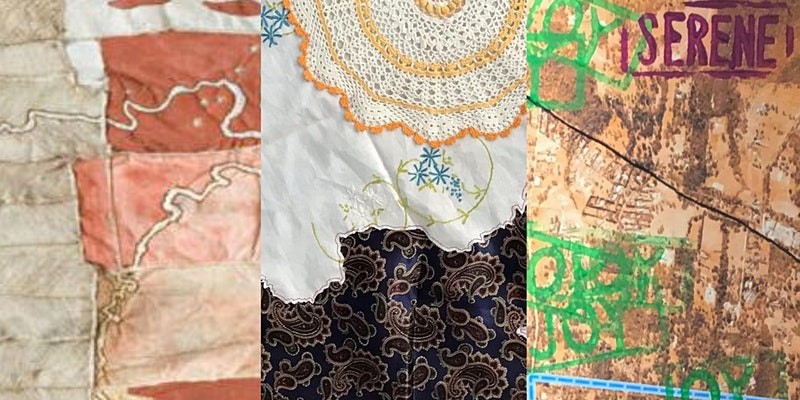Seminar
A Climate of Change: creative counter mapping methods for sensing place
4 August 2021
Online | See registration form to confirm hour of the event according to your time zone
Overview
As a site for public practice and political praxis, cultural mapping is both a method of inquiry and a methodological tool in social art making, urban planning, and community development that makes visible the ways local stories, practices, relationships, physical memories, and rituals constitute places as meaningful locations. Contemporary artists and community activists use creative cartographies as tools for engagement, understanding relationships, and to draw attention to counter-narratives on the politics of land, place and history. Historically, maps have served as tools of colonization, ownership and exclusion, but these new approaches highlight the potentials of creative participatory methods, insurgent research and public-led pedagogies for engaging with the complexity of globalised and more-than-human cities in climate change. In these conversations, we will critically engage with diverse creative and practical projects of artists and scholars focused on public and participatory outcomes.
This event is presented by an interdisciplinary team of artists and researchers at RMIT University and hosted by CAST (contemporary art and social transformation) research group, Critical Urban Governance (CUG) research group, and the Mapping Future Imaginaries (MFI) research network, School of Education.
- Vicki Couzens is a Gunditjmara woman from the Western Districts of Victoria. Vicki acknowledges her Ancestors and Elders who guide her work. Vicki’s contributions in the reclamation, regeneration and revitalisation of cultural knowledge and practice extend across the ‘arts and creative cultural expression’ spectrum including language revitalisation, ceremony, community arts, public art, visual and performing arts, and writing.
- Wendy Steele is an urban researcher, writer, activist and educator based at RMIT University in Melbourne who works at the nexus of the environmental humanities (literature and philosophy) and critical social sciences (human geography and urban governance/policy) to explore the nature of cities in climate change.
- Libby Porter is a scholar in planning and urban geography, based at the Centre for Urban Research, RMIT University. Her work is about displacement and dispossession in cities. She has contributed to debates about the relationship between Indigenous rights in planning and urban development, as well as the displacement effects of urban regeneration, urban governance, and the politics of urban informality.
- Tammy Wong Hulbert is a visual artist, curator and academic focused on exploring the complex and often fragmented spaces between cultures in a globalising world. She expresses these ideas through her artistic and curatorial projects, which focus on socially engaged practices working with various urban communities.
- Marnie Badham has a 25 year history of art and social justice practice in Australia and Canada. Her research sits at the intersection of socially-engaged art, participatory research methodologies and the politics of cultural measurement.
- Linda Knight uses critical and speculative practices to explore diverse notions of citizenship. Linda devised ‘Inefficient Mapping’ as both an art practice and a methodological protocol for projects informed by ‘post-‘ theories. Linda is Director of the Mapping Future Imaginaries research network.
- Troy Innocent is an urban play scholar and artist gamemaker, playing in cities such as Melbourne, Bristol, Barcelona and Hong Kong. Innocent is creator of 64 Ways of Being, an art experience making cities playable through augmented reality.
Video recording of the event (scroll down to the 4th video): https://cast.org.au/podcasts/


